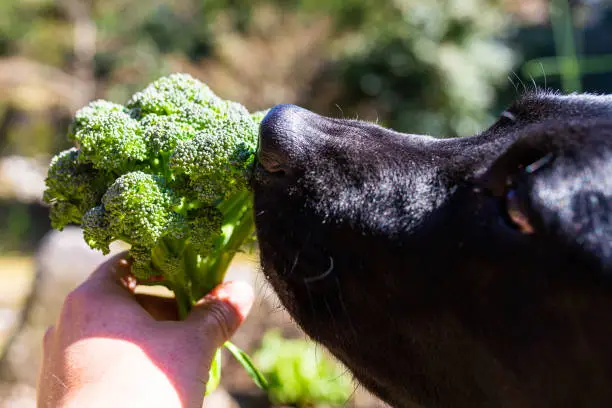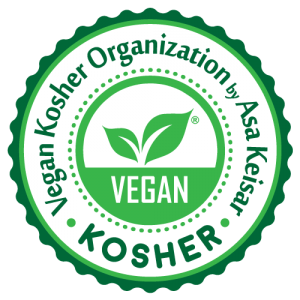It is very significant that a new organization, “Vegan Kosher” has been established in Israel to promote veganism in Israel and beyond, writes Richard Schwartz.
It was established by Israeli Orthodox Rabbi Asa Keisar, author of In Front of the Blind, based on the Torah teaching that one is not to put a stumbling block in front of a blind person (Leviticus 19:14), which he believes the livestock industry is doing by hiding the ways that animals are cruelly treated. He has also been a frequent speaker for about a decade throughout Israel on how animal-based diets are inconsistent with Jewish teachings about compassion to animals.
Rabbi Keisar’s efforts are very important because is essential that there be a major societal shift toward vegan diets since animal-based diets and agriculture contribute to many major societal problems, including:
- An epidemic of heart disease, cancer, and other life threatening diseases
- Widespread mistreatment of farmed animals
- Climate change and other environmental threats to humanity
- The wasteful use of land, water, energy, and other resources
- The potential of future pandemics, as the present Coronavirus pandemic and many previous pandemics were caused by the widespread mistreatment and consumption of meat and other animal products
- Hunger, as much of the world’s grain is fed to animals destined for slaughter.
Because of the above and much more, Jews can be far more consistent with basic Jewish teachings on preserving our health, treating animals with compassion, protecting the environment, conserving natural resources, and helping reduce hunger by switching to delicious, nutritious plant-based diets.
Vegan Kosher provides a kosher-vegan label to help consumers identify foods that are strictly kosher, according to Jewish law, and strictly vegan, completely without any animal products. Rabbi Keisar hopes that his new project will reduce animal suffering while promoting better Torah adherence.
There have been recent trends toward the consumption of kosher foods and vegan foods, so Vegan Kosher’s efforts are very important. The vegan food market is projected to increase from $15.1 billion to $20 billion in the next three years.
Judaism has very strong teachings about compassion to animals. Jews are mandated to be rachmanim b’nei rachmanim, compassionate children of compassionate ancestors (Beitzah 32b), emulating God, Whose compassion is over all His works (Psalms 145:9). The Jewish tradition clearly indicates that Jews are forbidden to be cruel to animals and that we are to treat them with compassion. These concepts are summarized in the Hebrew phrase tza’ar ba’alei chayim, the Torah mandate not to cause “sorrow to a living creature.” Perhaps the Jewish attitude toward animals is best summarized by the statement in Proverbs 12:10: “A righteous person considers the welfare of his or her animal.”
There are many Torah laws involving compassion to animals. An ox is not to be muzzled when threshing in a field of grain (Deuteronomy 25:4), and a farmer should not plow with an ox and an ass together,” so that the weaker animal would not suffer pain in trying to keep up with the stronger one (Deuteronomy 22:10). Compassion to animals is even part of the Ten Commandments, which indicates that animals, as well as people, are to rest on the Sabbath day (Exodus 20:10; Deuteronomy 5:12–14).
Many Jewish heroes were chosen because they showed kindness to animals. Moses and King David were considered worthy to be leaders because of their tender care of animals when they were shepherds (Exodus Rabbah 2:2). Rebecca was judged suitable to be Isaac’s wife because of her kindness in providing water to the ten thirsty camels of Eliezer, Abraham’s servant, who had just crossed a desert (Genesis 24:20).
Unfortunately, the conditions under which animals are raised for food today are quite different from any that the Torah would condone, or would even be recognized by Jewish sages of the past. Modern animal agriculture primarily involves placing animals in large numbers in huge facilities in order to obtain maximum profits by treating animals as industrial units rather than sentient creatures. For example, today’s modern milk factories raise cows for maximum milk production at minimum cost, resulting in much cruelty to the cows. Farmers artificially inseminate each cow annually on what the industry calls “rape racks.”so that the mother cow will constantly produce milk for human consumption. Whereas calves, like human infants, would nurse for nearly a year if there were no human intervention, it is usual practice to separate mother and calf soon after birth, which is traumatic to both.
There is also much cruelty in the egg industry. Most “layer” hens (hens bred to lay eggs) live their lives confined inside rows of stacked wire cages, with five hens generally squeezed into each eighteen-by-twenty-inch cage. Overcrowding is so severe that a hen cannot fully stretch even one wing. As a result of these very unnatural conditions, the birds are driven to peck at each other, which harms and sometimes kills their fellow cellmates, thus reducing the producers’ profits. To avoid this, the hens are “debeaked.” Debeaking is a very painful, often debilitating procedure that involves cutting off much of the hen’s beak with a hot knife while her head is held by hand or in a vise. There is done without the benefit of anesthesia or painkillers.
Because male chicks have no value to the egg industry and, unlike “broilers,” have not been bred to grow fat quickly, they are discarded within hours of birth. Each day in the United States, hatchery workers stuff over half a million live male chicks into plastic bags where they die of crushing or suffocation, or feed them into macerators to be ground up alive.
Because of these and many other examples of cruelty in raising farmed animals for slaughter, Rabbi David Rosen, former chief rabbi of Ireland stated, “the current treatment of animals in the livestock trade definitely renders the consumption of meat as halachically unacceptable as the product of illegitimate means.”
Keisar stresses that the food industry today puts profits ahead of animal welfare and therefore violates basic Jewish teachings about compassion to animals. He emphasizes that the Vegan Kosher label helps kosher, vegan customers avoid reliability concerns and save time, since they need not read complex labels, interpret unfamiliar food components or contact the manufacturer for information. To be approved by Vegan Kosher, a product mustn’t contain animal ingredients such as meat, eggs, milk, or honey, or contain any raw materials that are in any way composed of animals, nor be produced through the use of animal products in the production process.
Vegan Kosher consists of a committee of ultra-Orthodox rabbis who have exclusive control over decisions regarding product supervision. The organization strives to make veganism more accessible, convenient and acceptable. The certified Vegan Kosher logo is an additional way to introduce the concept of veganism to the general public, to consumers of kosher products around the world, and to industry in general. Vegan Kosher aspires to promote humanity to an existence where animals are no longer exploited by humans for food, clothing, entertainment or any other purpose.
Vegan Kosher also guarantees that non-food products, such as clothing, and services do not involve any cruelty to animals.
More information about Vegan Kosher may be obtained by emailing [email protected], calling 051 560 3939, and visiting https://asakeisar.com/en/
————-
Much of the material in this article comes from information provided by Vegan Kosher.



















